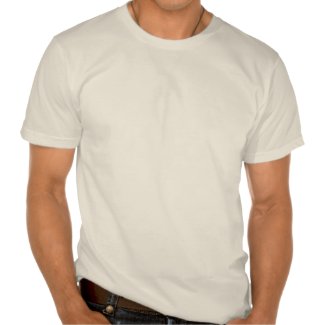 I've been watching classic movies since the mid 1980s and I've been interested in film preservation since the mid-1990s. I must say though that my interest in film preservation, was at first entirely selfish. Being big into Cary Grant, there were a small group of us who simply wanted copies of all of his films. Cary Grant belonged to Paramount for the first seven years of his film career. Around a third of his total filmography belonged to Paramount and with all the corporate mergers in the 80s, these archives changed hands pretty frequently.
I've been watching classic movies since the mid 1980s and I've been interested in film preservation since the mid-1990s. I must say though that my interest in film preservation, was at first entirely selfish. Being big into Cary Grant, there were a small group of us who simply wanted copies of all of his films. Cary Grant belonged to Paramount for the first seven years of his film career. Around a third of his total filmography belonged to Paramount and with all the corporate mergers in the 80s, these archives changed hands pretty frequently.In the seventies and early eighties, before home video took over the world, classic films were primarily shown in the afternoons on local televisions stations as filler programming. Paramount sold the rights to many of their early films to be shown on television. At that time, satellite television was just coming onto the consumer market. They were expensive but they appealed to people who lived in remote places or who were gadget heads. There were also quite a few film fanatics and collectors who owned dishes. They could sit in their living room in Wyoming and tape movies off the dish being shown anywhere in the world. These unsung heroes were the renegade saints of the classic film world for they had in their vast archives of video tapes a great many films which were simply unavailable anywhere else. And luckily they were happy to sell them to us for little more than the cost of their efforts. This truly was a labor of love.
 Though Turner Classic Movies existed in the late 90s their access to the Paramount archives was (and still is) limited. To this day, many early Paramount films are tied up in this limbo. There is very little hope that most of these films see the light of day as a DVD release. Paramount not only owned Cary Grant, but Gary Cooper. Cary Grant fans are lucky, all his work survives and many of those titles which we lovingly bootlegged and passed around amongst ourselves 15 years ago, have since been officially released. Gary Cooper fans are not so lucky. A great deal of Cooper's silent work is considered lost and many of his early Paramount efforts are only available through back channels on the internet. Of course, Paramount is just one studio and Gary Cooper is just one star. What of the fate of the work of lesser known, but equally great actors? What of the smaller studios? The foreign studios? Those films have even less of a chance of ever being rescued from the dustbin.
Though Turner Classic Movies existed in the late 90s their access to the Paramount archives was (and still is) limited. To this day, many early Paramount films are tied up in this limbo. There is very little hope that most of these films see the light of day as a DVD release. Paramount not only owned Cary Grant, but Gary Cooper. Cary Grant fans are lucky, all his work survives and many of those titles which we lovingly bootlegged and passed around amongst ourselves 15 years ago, have since been officially released. Gary Cooper fans are not so lucky. A great deal of Cooper's silent work is considered lost and many of his early Paramount efforts are only available through back channels on the internet. Of course, Paramount is just one studio and Gary Cooper is just one star. What of the fate of the work of lesser known, but equally great actors? What of the smaller studios? The foreign studios? Those films have even less of a chance of ever being rescued from the dustbin. It is these back channels that I want to talk to today. There are numerous sellers on Ebay, Bonanzle and on small e-commerce sights who collect rare and out of print films and distribute them at a low price, usually enough to recoup their cost in time and materials. Some collectors keep lists of missing or lost titles. Occasionally collectors turn up with a copy of these lost titles and the film can be momentarily preserved because it can be seen. The quality of these copies varies so widely, it's hardly worth talking about, but suffice to say that it's not uncommon to buy two or three copies of a film over time, to try to improve one's luck. I have four copies of the Lawrence Olivier/Merle Oberon film, the Divorce of Lady X. The first two were old VHS tapes that were unplayable by the time I got a hold of them. Eventually, I was able to track down a decent fan made DVD rip of the movie just before an official DVD came out.
It is these back channels that I want to talk to today. There are numerous sellers on Ebay, Bonanzle and on small e-commerce sights who collect rare and out of print films and distribute them at a low price, usually enough to recoup their cost in time and materials. Some collectors keep lists of missing or lost titles. Occasionally collectors turn up with a copy of these lost titles and the film can be momentarily preserved because it can be seen. The quality of these copies varies so widely, it's hardly worth talking about, but suffice to say that it's not uncommon to buy two or three copies of a film over time, to try to improve one's luck. I have four copies of the Lawrence Olivier/Merle Oberon film, the Divorce of Lady X. The first two were old VHS tapes that were unplayable by the time I got a hold of them. Eventually, I was able to track down a decent fan made DVD rip of the movie just before an official DVD came out.In recent years there are a die-hard group of film fans who upload classic movies to Youtube in 10 minute chunks. There are many films that I would not have been able to track down if it weren't for these new rogue bootleggers. Their films are constantly being removed by Youtube which doesn't allow complete films on its site, but they continue to operate, changing titles, keywords and accounts frequently. Again, this is a labor of love. The people uploading the movies receive no compensation for their time and efforts.
What does all this have to do with film preservation? As much as this internet back alley trading keeps collectors going, and in some cases is the only way we can preserve a film if its original has been lost, it is simply not enough. Google Books is in court battling an anti-trust suit and its outcome could potentially effect classic film fans. If the court allows Google to electronically publish books whose copyright holders can no longer be tracked down, there is a possibility that films whose copyrights are in similar limbo could be electronically cataloged in the same way. Five years from now we could sit down at our computers and stream these classic films to our computers.
Of course films aren't exactly analagous to books. To begin with, books are a lot tougher than movies. If you don't believe me just pick up an old Photoplay magazine from the 1930s and count the number of "lost" titles within. The cheapest pulp paper is more durable than the most expensive film stock from a given year. Even handling archived collections is risky, let alone figuring out how to digitize them. For those films that are in stable condition sitting in archives, unseen there should be a massive digitization effort. For film fans and for future generations these things should be made digital and they should be made available.
 For films that are in the hands of private collectors, digital technology should make sharing them easier than ever. Sadly this has not been the case. Peer to peer (P2P) sharing, which has been the bane of music and movie industries has not had much effect on the classic film market. In order for P2P to be effective you need to have a large number of people interested in a title and willing to allow people to download it from their computer. If any of you are old enough to remember the final days of the original Naptster you may recall that it went from being a place where you could slowly download the latest top 40 junk to a music-lovers paradise where you get any obscure thing you could want at high speeds. The reason for this improvement was that the rumors of the demise of the site pushed a huge number of users there at once. Compared to the latest blockbuster still in the theater, there is almost no interest in sharing a 70-year old film.
For films that are in the hands of private collectors, digital technology should make sharing them easier than ever. Sadly this has not been the case. Peer to peer (P2P) sharing, which has been the bane of music and movie industries has not had much effect on the classic film market. In order for P2P to be effective you need to have a large number of people interested in a title and willing to allow people to download it from their computer. If any of you are old enough to remember the final days of the original Naptster you may recall that it went from being a place where you could slowly download the latest top 40 junk to a music-lovers paradise where you get any obscure thing you could want at high speeds. The reason for this improvement was that the rumors of the demise of the site pushed a huge number of users there at once. Compared to the latest blockbuster still in the theater, there is almost no interest in sharing a 70-year old film.It's conceivable that a safe harbor for out of print films could be created, where fans could peer to peer share their collections using the internet instead of the mail. It's possible that VEOH, which Time Warner and other corporations have invested in, which runs on P2P, might be the perfect place. They allow high quality dowloads, support flash streaming and most importantly, whole movies. My experiences with streaming classic movies there have been maddeningly frustrating, but if the site were to catch on with more classic movie fans, maybe the ease of delivery would be improved. I should start a rumor that VEOH is going away!
Another viable model for getting films out of the vaults and into DVD players, is being used by Warner Brother's for their Vault Collection. They burn a DVD after its paid for and send it out. It's rather like those Bonanzle sellers who make a DVDR for you after your Paypal has cleared. You can support this model by buying those DVDs. If it proves profitable, I think other film collections could be distributed in this way. Not only will it increase the number of titles on offer, it would greatly improve things for the average film collector subject to the whims of the market where titles constantly go in and out of print.
 What of those films in archives that are not stable, that are damaged and deteriorated to the point that digitizing is out of the question? This is where the painstaking and expensive work of restoration comes in. I once looked in to the possibility of purchasing restoration software. I was told that a single license cost $30,000. This is before you take into account the user skill and expensive hardware set-ups required for such an undertaking. Many organizations public and private do film restoration. This blogathon is in support of the National Film Preservation Foundation, which is part of the Library of Congress. I can personally attest to the quality work that this organization does. In 2001, as part of a Cary Grant convention we were allowed to view the recently restored Notorious. I'd seen the film many times on television and at least once in a theater, but seeing a newly restored print in a theater is almost like watching a different movie. You notice new details in the background and on the soundtrack. Seeing the original contrast in a black and white film makes the images leap off the screen, where before they might have been very gray or washed out.
What of those films in archives that are not stable, that are damaged and deteriorated to the point that digitizing is out of the question? This is where the painstaking and expensive work of restoration comes in. I once looked in to the possibility of purchasing restoration software. I was told that a single license cost $30,000. This is before you take into account the user skill and expensive hardware set-ups required for such an undertaking. Many organizations public and private do film restoration. This blogathon is in support of the National Film Preservation Foundation, which is part of the Library of Congress. I can personally attest to the quality work that this organization does. In 2001, as part of a Cary Grant convention we were allowed to view the recently restored Notorious. I'd seen the film many times on television and at least once in a theater, but seeing a newly restored print in a theater is almost like watching a different movie. You notice new details in the background and on the soundtrack. Seeing the original contrast in a black and white film makes the images leap off the screen, where before they might have been very gray or washed out.Please check out the NFPF, support the blogathon and consider giving a contribution. In a somewhat similar vein to my post, John McElwee of Greenbriar Picture Show recounts his own efforts at film collecting and preservation in the 1970s.





12 comments:
Hi Jenny,
Thanks for this post. I too believe that we should be doing everything we can to preserve and make available as many classic films as possible. For me it also started with Cary Grant. A number of years ago I decided to try and collect all of his films and was disappointed at how few were commercially available on DVD. It's encouraging that so many have recently been released in the US via the Warner Archives and from the Universal catalog (only 11 out of 72 films to go!), but it puzzles me why some that are shown on TCM are still not available (In Name Only, None But the Lonely Heart).
Anyway, this experience prompted me to make a contribution to AFI to support film preservation, but I wasn't familiar with NFPF and will certainly check it out. Do you know how the film preservation efforts of AFI and NFPF compare?
Jenny: "The cheapest pulp paper is more durable than the most expensive film stock from a given year." That's a good observation, although the acid in pulp paper, like the acid in nitrate, is burning up a lot of old books and magazines. But they are easier to reproduce. Thank you for the interesting post.
Very Interesting and indepth post.
I for one love a classic, and am glad to see many now released on DVD.
You also meantioned you found some sellers, including some on Bonanzle, selling Bootleg copies.
Let me assure you the Owner of Bonanzle doe not approve of this and will pull this films and the sellers of them off the site, once they either find them or are alerted to them.
I encourage everyone to report anyone to support on Bonanzle that you feel is bootlegging.
Thank you
I was unaware of this underworld of film pirates (I mean this in a nice way). Fascinating post.....
Amazing post! I've had similar problems with Dirk Bogarde films as you did with Cary Grant, practically none of his movies give or take a few are available commercially in the US or the UK. And I had no clue about Gary Cooper! So awful!
My poor family, I think I complain to them about film availability almost daily. It's probably my biggest pet peeve.
Fascinating post!
That was interesting, but so depressing! I hope digitizing and the MOD model both work. Otherwise, I think the future will be very sad for us classic movie fans.
rab: I haven't had any first hand experience with AFI. I'm sure they do good work too, though.
Joe Thompson: Yes, true pulp is fragile too. Yet, I was at a train museum on the weekend and was amazed that paper ads for trains were all that were left of some magnificent machines. And they were made of wood and steel! The more expensive and overhead-heavy a restoration is, the less likely it will get done.
Renagade: I'm not sure why I'd want my readers to go around reporting sellers to Bonanzle. I'm going to feel terrible if one of my favorite sellers gets busted because of my article. I think safe harbor should be given to people who dub out of print films. They have a tendency to be far more reliable than say, the used VHS tape market.
Miss Tinky: Well I got tired of it being the dirty little secret of classic film fans.
Kate: It's people who are obsessive completionists for a particular actor who really help save some of these obscure titles.
Millie:Thanks! I'm enjoying your tweets.
KC: Don't be sad. I think things are better for film fans that they were 20 years ago. Digitization offers a lot of potential, I think. I'm hopeful. As for restoration, every minute that goes by, things get worse. That's why the blogathon was so important.
I worked for Binnie Barnes back the mid '80's-mid '90's..
She'd be furious seeing her movies play, public domain remains.
"The Divorce of Lady X" is one of my favorites with the hairbrush throwing scene.
She once told me that she and Merle Oberon had been tea girls when they were discovered - then becoming the actresses they were.
AFI is as awful as the Academy in terms of preservation. They use students and so much has been lost.
My father, William E. Ault did much renovation for the Library of Congress.
The problem with collecting early films is that so many were lost to deterioration and improper storage.The studios also had control over what could and could not be released, not forseeing the future as they were prone to do.
If anyone would like to chat, I can be reached at mault53@yahoo.com.
This is a great article. I thank god that here are so many bootleggers out there because without them I wouldn't have been able to see many of my favourite actors' films. My two absolute favourites are Alan Ladd and Gary Cooper so I know from painful experience how hard it is to get some films. I have finally got hold of all Alan Ladd's post 1940 films but some are not good quality - especially Lucky Jordan and Beyond Glory which happen to be two of my favourites. I can't even find these two on an official vhs. As you say I also have lots of missing Gary Cooper films.
I wish I could get the original films and have them restored - its a real passion of mine but I wouldn't know where to start looking for the original films never mind how to go about getting them restored. If anyone knows where to look let me know because its something I would love to do!
Post a Comment